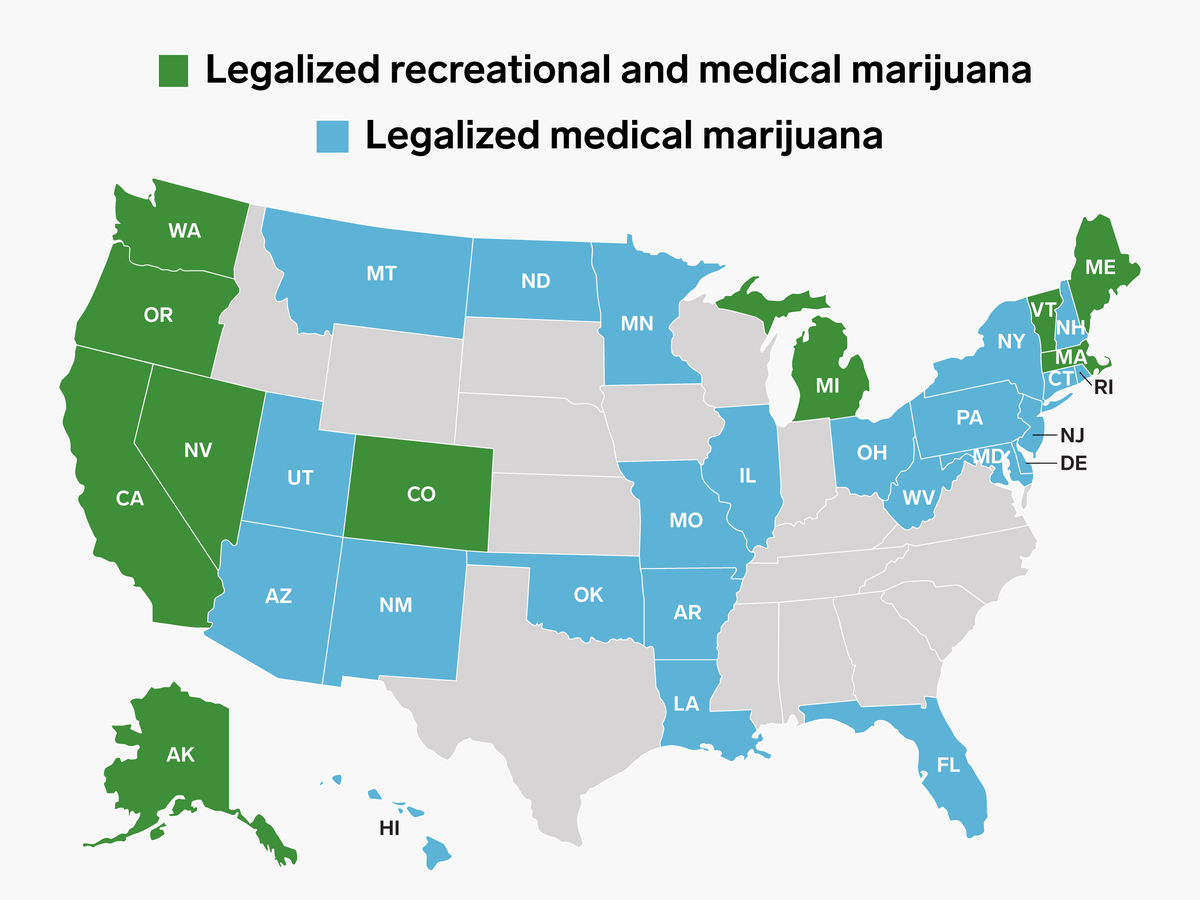The US just moved closer to national legalisation of recreational marijuana

It’s been a head-spinning 24 hours in the US news cycle — particularly for investors in the scorching-hot, but often volatile, cannabis sector.
In the last day or so, Michigan became the tenth US state to legalise marijuana. Utah and Missouri voted on legalising marijuana. And two of the most anti-marijuana politicians in Washington, Pete Sessions and Attorney General Jeff Sessions, were kicked to the curb in the US Mid-term elections.
That’s good for US cannabis plays as well as the 30-odd ASX-listed pot stocks.
Canadian marijuana producer Tilray jumped 30 per cent after Sessions announced he was stepping down on Wednesday — which boosted the entire North American Marijuana Index.
“The market’s ripping right now,” said Morgan Paxhia, a managing partner at Poseidon Asset Management.
What that shows, Paxhia said, is “how much investor demand is out there relative to what they’re able to buy”.
>> Weed week: here’s all the news driving the ASX cannabis sector
To Todd Harrison, the founding partner of CB1 Capital, a cannabis-focused hedge fund, these huge swings in the cannabis sector are just a sign of “shaking out the weak hands,” and putting the shares in “firmer accounts.”
All this has led the many cannabis bulls to predict that there will be some US federal movement on marijuana legalisation – or at least to allow cannabis companies to access regular banking services – in the near future.
While ten US States have legalised recreational marijuana, it’s technically still illegal under US federal law.
Pending legislation like the bipartisan STATES Act – co-sponsored by Senators Elizabeth Warren and Cory Gardner – is the most likely path for the US federal government to clarify its position on the current patchwork of state-legal cannabis industries, says Paul Rosen, CEO of Toronto-based cannabiss financer Tidal Royalty.
If passed, the STATES Act would exempt US states that have legalised marijuana from the Controlled Substances Act — effectively removing an ongoing conflict between state and federal law.
The Act would also clarify rules around banking and tax deductions, allowing cannabis to operate like any other industry.
That would finally let big institutions – like BlackRock and Goldman Sachs – to “jump headlong” into the US cannabis operators, says Brady Cobb, CEO of SOL Global Investments.
“This is the first time I see the light at the end of the tunnel,” Cobb said.
While Sessions stepping down was “positive on the margin”, clarity around banking rules is the more “meaningful catalyst” for the cannabis industry, Harrison said.
“The bulls are training their ears on that,” he said.
BlackRock president Rob Kapito said last week his firm “will be investing” in the cannabis industry, but because most bank custodians won’t clear cannabis stocks, they’d have to wait for now.
In the meantime, ASX pot stocks have been attracting interest from some of the big North American cannabis players.
Canopy Growth owns 11.2 per cent of AusCann (ASX:AC8) and Aphria has 25 per cent of Althea Group (ASX:AGH).
Aurora — the world’s second biggest pot stock — is Cann Group’s (ASX:CAN) biggest shareholder with 23 per cent.
Though for most investors in the space, it’s still early innings for the cannabis industry.
“In the context of 30,000 years of humanity’s relationship with cannabis, 90 years of propaganda is like a pimple on an elephant’s arse,” Harrison said. “The best catalysts are still in front of us.”
This article first appeared on Business Insider Australia, Australia’s most popular business news website. Read the original article. Follow Business Insider on Facebook or Twitter.
UNLOCK INSIGHTS
Discover the untold stories of emerging ASX stocks.
Daily news and expert analysis, it's free to subscribe.
By proceeding, you confirm you understand that we handle personal information in accordance with our Privacy Policy.









